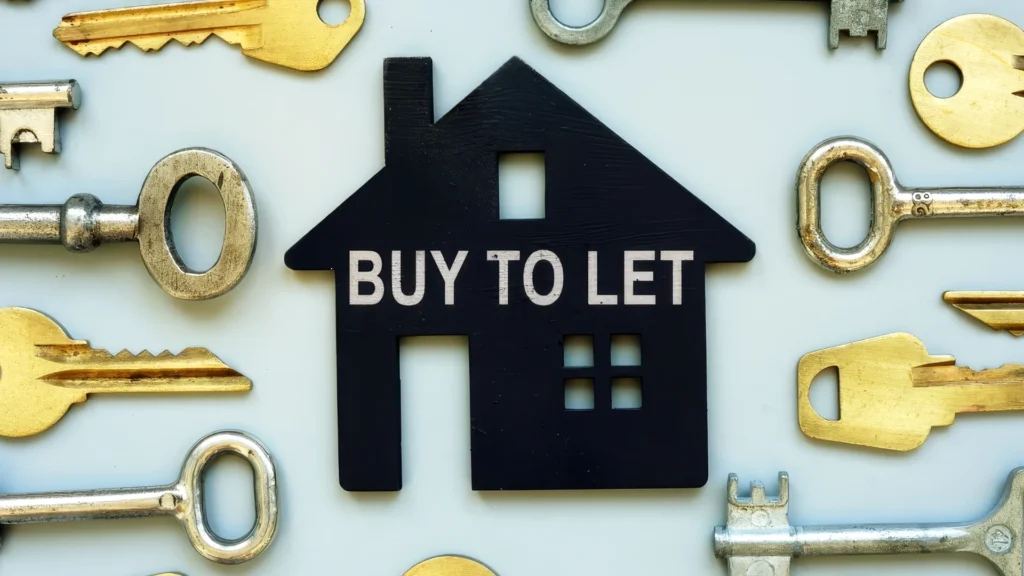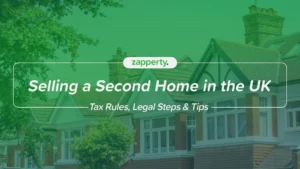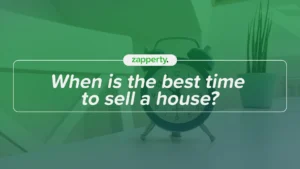If you’ve ever dipped your toes into the UK property market, you’ve likely come across the term “no onward chain.” But what does it mean, and why is it such a big deal for buyers and sellers?
In simple terms, “no onward chain” describes a property sale where the seller isn’t dependent on buying another home at the same time. This independence can significantly streamline the process, reducing delays and the risk of complications.
Why is this important? Because understanding terms like “no onward chain” can save you from stress and uncertainty during your property journey.
In this guide, we’ll explain everything you need to know about this term, how it compares to traditional property chains, and why it matters in UK real estate. We’ll also provide practical insights into how buying a house with no onward chain affects timelines and decision-making.
Understanding “No Onward Chain”
What Does “No Onward Chain” Mean?
When a property is sold with “no onward chain,” it means the seller is not relying on the sale to fund the purchase of another home. Unlike most property transactions, where sellers need the funds from their sale to purchase their next home, a chain-free sale allows the process to move more smoothly.
This could be because:
- The property is being sold by someone moving into rented accommodation.
- The seller is relocating overseas or downsizing.
- The property is part of a probate sale, meaning it’s being sold as part of an estate settlement.
- It’s a buy-to-let property that is no longer tenanted.
Traditional Chains vs. No Onward Chain
In a traditional chain, several property transactions are linked together. For example, Person A sells their home to Person B, who sells their home to Person C. If one part of the chain encounters delays—such as a mortgage issue or survey problem—the entire chain can be affected.
With a no onward chain property, there’s no such domino effect. This independence means fewer delays, fewer headaches, and a much lower chance of the deal falling through.
Implications for Buyers and Sellers
- For Buyers: A no onward chain property can fast-track your move, making it ideal if you’re on a tight timeline.
- For Sellers: Listing your home as chain-free can attract buyers who value speed and simplicity, giving you an edge in the market.
The Significance of “No Onward Chain” in UK Real Estate
Why It Matters in the UK Market
The UK property market is notorious for its complexity. Long chains are a common feature, with multiple buyers and sellers relying on each other to complete transactions. These chains can be fragile—if one deal collapses, it can bring down the entire chain.
A no onward chain property eliminates this risk, offering a welcome relief for buyers who want a straightforward process. Sellers, too, benefit by attracting serious buyers ready to move quickly.
Benefits of Buying a Chain-Free Property
- Faster Transactions: Without the seller needing to purchase another property, transactions can move quickly, often completed in as little as four to six weeks.
- Reduced Risk of Collapse: A chain-free sale minimises the chances of the deal falling through due to issues elsewhere in the chain.
- Less Stress: Buyers and sellers can enjoy a smoother process with fewer variables to manage
Common Scenarios Where “No Onward Chain” Applies
The term is often used in scenarios like:
1. Probate Sales
When a property is sold as part of an estate inheritance, it’s often listed as no onward chain. In these cases:
- The property may have belonged to a deceased individual whose heirs have decided to sell rather than keep it.
- The sale is typically handled by the executor of the will, which means there is no need for the seller to buy a new home.
- Probate sales are especially common in well-established neighbourhoods or older properties that come with unique character and charm.
For buyers, this can be a chance to acquire a home that might not have been available under typical market conditions.
2. Landlord or Buy-to-Let Sales
Landlords looking to exit the property rental market or liquidate assets often sell properties without onward chain complications. This happens when:
- The property is already vacant or has been recently vacated by tenants.
- The landlord has no intention of buying another property to replace the one being sold.
For buyers, these properties can offer opportunities, particularly if they’re seeking a ready-to-move-in home or a turnkey investment.
3. Downsizing
Individuals or families looking to downsize—perhaps due to retirement, lifestyle changes, or financial reasons—often sell their larger homes without needing to purchase another property.
- They may move into smaller, rented accommodation or join retirement communities.
- Downsizing can also include relocating to another country or region, especially for retirees.
This scenario often leads to properties being well-maintained and thoughtfully cared for over the years, making them appealing to buyers.
4. Relocation for Work or Personal Reasons
Job relocations, moving abroad, or personal life changes often prompt homeowners to sell their property quickly.
- The seller may not need to buy another home immediately because they are moving to a rented property near their new workplace.
- International relocations, in particular, are a common reason for no onward chain listings, as sellers often prefer to avoid the complications of purchasing property in their destination country.
Buyers benefit from these situations because sellers are often highly motivated to complete the transaction quickly.
5. New-Build or Developer Sales
Properties sold directly by developers or builders are inherently chain-free because the property is new and has no prior owner.
- These homes are ideal for buyers who want a modern property with no additional dependencies.
- Buyers often have the added advantage of choosing customisations or upgrades to suit their preferences before moving in.
For first-time buyers or those looking for a hassle-free experience, purchasing a new-build property is a straightforward option.
6. Divorce or Separation Sales
In cases of divorce or separation, one or both parties may choose to sell the property quickly and move on with their lives.
- There’s usually no onward chain because both individuals often opt for independent living arrangements.
- These sales are often motivated by the need for a fast resolution, which can benefit buyers in terms of price and timing.
7. Second or Holiday Home Sales
Owners of second homes or holiday properties often sell without needing to buy another home.
- These properties are typically located in desirable areas, such as the countryside or near the coast, and may be fully furnished.
- The lack of onward chain is a major selling point, especially for buyers seeking a getaway home or an investment property.
8. Sellers Moving into Care Facilities
Elderly homeowners transitioning into assisted living or care facilities often sell their homes with no onward chain.
- This scenario is particularly common for long-term family homes, which may carry sentimental value for buyers.
- These properties are often located in established neighbourhoods with access to good amenities.
Practical Considerations When Buying a House with No Onward Chain
How Does “No Onward Chain” Affect the Buying Process?
A no onward chain property can make your buying journey more straightforward:
- Simplified Negotiations: Sellers with no onward chain are often more motivated to close the deal quickly, making negotiations smoother.
- Faster Completion Times: On average, you can expect the process to be completed in 4–8 weeks, much faster than traditional sales.
Typical Timelines for Selling a House with No Chain
Selling a house with no onward chain can often take 4–8 weeks from offer to completion, depending on factors such as surveys, mortgage approvals, and solicitor efficiency. This is notably faster than chain-dependent sales, which can stretch to several months.
Related Terms Explained
- “Chain-Free”: Similar to “no onward chain,” but usually means the buyer and seller are both not in chains, offering an even smoother process.
- “No Chain”: Often used interchangeably with “no onward chain,” it means neither side is reliant on other property transactions.
Conclusion
Understanding the term “no onward chain” can make all the difference when buying or selling a property in the UK. By simplifying the transaction and reducing risks, a chain-free property offers peace of mind for everyone involved.
Key Points to Remember:
- A no onward chain property is not reliant on the seller buying another home, making the process faster and more reliable.
- Buyers benefit from quicker timelines and reduced stress.
- Sellers can attract motivated buyers and enjoy a smoother sale.
If your house sale has fallen through or you’re struggling with a property chain, Zapperty is here to help. We specialise in quick, hassle-free property sales tailored to your needs.
Sell with Zapperty if your house sale has fallen through.
Want to learn more about property chains and how they affect sales? Check out our guide: What is a Property Chain. With Zapperty, you’re always one step closer to a smoother, faster property sale.












